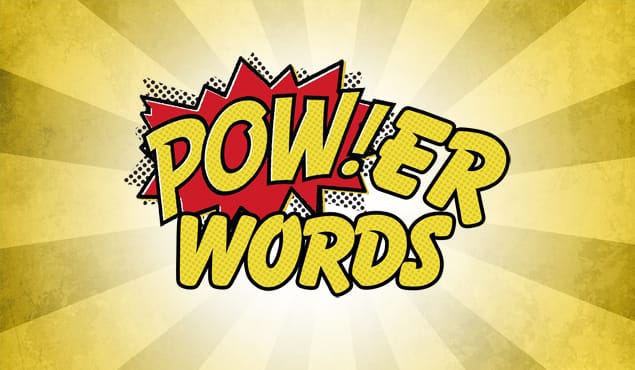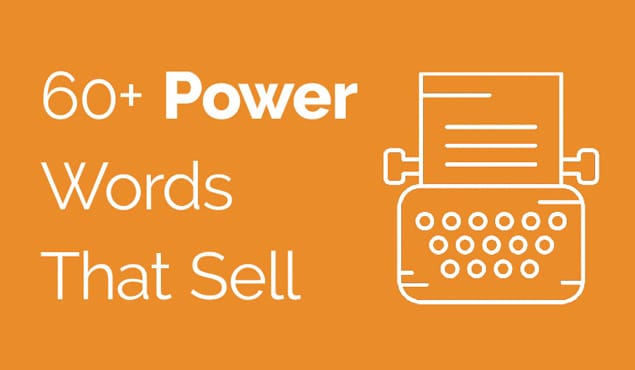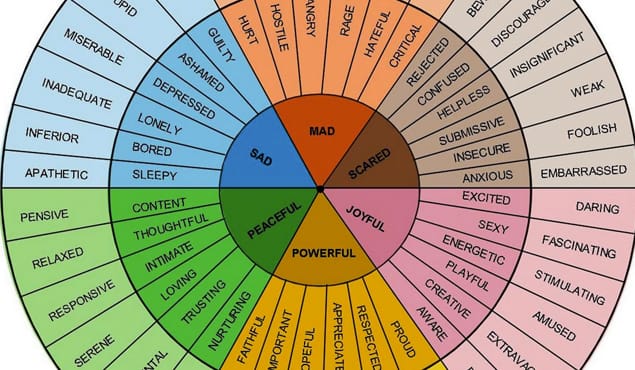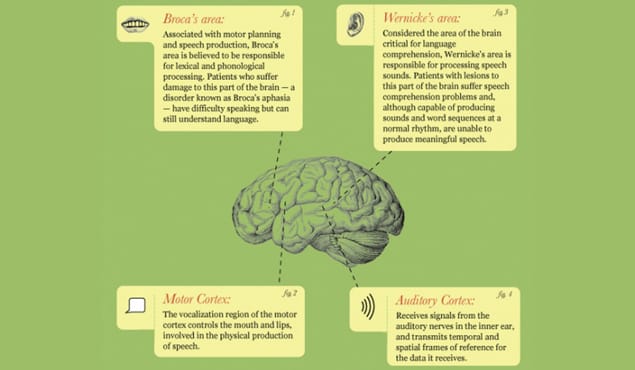Power words are the utterable commands issued by high-wizards in the game Dungeons and Dragons, to be used to persuade party members, NPCs, and humanoid monsters to do whatever the wizard desires.
Wait. That doesn’t sound right. It sounds cool, but not accurate or on-topic. I’ve peaked your interest though, right? I mean, who doesn’t want to perform magic in order to get exactly what they want? We all do.
You know who wants that more than anyone? Marketers. If marketers were wizards that could use power words in the above scenario, we’d each have six houses, seven cars, plots of land full of stuff piling to the clouds, and pretty much everything that consumer society produces on backorder.
The entire capitalistic society would be so overwhelmed by positive purchase it would topple itself. We’d all be in severe debt, which would have to be wiped, and there’d be a world-wide reset.
That is the potential of power words. If marketers were wizards.
How Writers Use Power Words
A writer, whatever their intention may be, whatever genre they write in, always has power words at their disposal.
This is true whether or not they know it. In fact, as a writer you probably use power words all the time, even if you’ve come here because you have no idea what exactly they are, or how exactly they work.
The beauty of these words is that they are used to evoke emotions, and we all walk through life being able to do that to each other without too much thought. When you translate a message into words, there are bound to be power words that come up.
This is especially true when you are trying to convince someone of something. There are theories that say all writing is, at some level, trying to convince someone of something, so it makes sense that power words are almost always used.
It may be words that form a bridge to your loneliness, words that comment on the political climate, or words that recall a nostalgic memory. Or, maybe you’re just trying to convince someone you know how a specific vacuum cleaner was made, and that you know how to fix it.
This concept — that words are used to convince someone of something, and that power words do that more so than anything else — is most true when it comes to marketing and blogging.
How Marketers Use Power Words
The example I gave above, how marketers as wizards using power words would destroy the world, is (as far as my imaginary research goes) highly accurate.
That’s because marketer’s are the world’s most aggressive power word users. They may not want to be, but they have to be, for two main reasons:
1. Short Time Frame
The first major hurdle for the marketer is the time in which they have to convince people of their ideas. First of all, it is their job to convince. A marketer, by position, is tasked with presenting a product (physical or otherwise) to a consumer and getting them to use it.
They have to do all of that in the span of a commercial, an email, a Facebook post, a flying banner ad.
The marketer has anywhere from 140 characters to a few paragraphs to convince you to keep reading. If they do it amazingly well, you won’t keep reading and just buy whatever they’re selling. If they do it pretty well, you’ll keep reading and consider buying. If they do it poorly, you move right on.
Doing it poorly means that they failed to convince you of their idea, while simultaneously failing to induce an emotional state for you. This emotional state is another factor in power words I’ll get into below.
The marketer’s extremely short time frame can be compared to that of a novelist, who has between 150-600 pages (roughly 60,000 – 150,000 words) to convince you of that something, or many things.
The power words must be bold, incisive, and tailored if the marketer is going to do their job well. And they do, over and over again.
2. Immediate Sell
The second reason marketer’s are (and must be) the most aggressive power word users in the world is that they are always selling you something.
The novelist is only selling you one thing, and if you’re reading the book, you’ve already bought it.
The marketer is using a paragraph of words, some of which are power, to sell you something you can buy at that very instant.
Example: “Look at this dog food commercial for your aging pup, the wonderful life you’ve shared, his heart-happy, tongue-lolling existence,” the marketer says, hoping that you don’t just ponder the suggestion, but take out your phone, load up your Amazon cart, and have it delivered in two days.
There’s the long sell, too, where an overall marketing campaign is geared to increase consumer participation over time. Still, I’d argue that any marketer would prefer the immediate sell, and if there isn’t some uptick at the start of the long sell, everyone starts to worry.
How Bloggers Use Power Words
If the marketer is the power word ninja, ducking in and out, cutting you in half before you’ve even realized they have a sword, the blogger is their beefed up, slightly long-winded older cousin.
Not that blogging is older than marketing, rather that bloggers take some of the best elements of a marketer’s power word history and expand it into full articles.
As a blogger and potential guest poster, you probably fall squarely into this category.
The good news is that, like most writers, you’re probably using power words already in your articles. If not, they are incredibly boring and don’t try to convince your readers of anything.
Bloggers concerned about their power word usage should focus on two main things:
1. Headlines
Man almighty, if this is not the key to everything in today’s blogging world, I don’t know what is. I’ll be honest — the headline game has gotten crazy, and I hate it.
“10 Pigs That Sound Like They’re Talking Before They Die! Must See”
“One Mother’s Insane Religion, and the Act Her Child Commits”
“You Can Lose Weight with Oreos, Here’s How!”
You get it. We’ve all seen it. The proliferation of ridiculous, click-bait titles on social media are, to most writers, insulting. Nobody wants or needs to read a lot of this crap.
But you’ll also notice that they are trending. That they go viral. That thousands upon thousands of people click on them, clutching their chests, wondering what on earth could have happened in this big ol’ world.
That’s because headlines like the ones above (my examples are overly dramatic on purpose) use power words to evoke emotion in readers.
Headlines are the blogger’s version of a marketer’s task — convince someone of something in as short a time as possible. Of course, the sell for a blogger is for the person to be intrigued enough to read more, not to buy the product outright.
You will want to write headlines that use power words — they need to evoke emotion and therefore curiosity so that people will read your article.
Once you get them there, the second step takes over.
2. The Actual Article
The article itself is where the blogger makes their pitch. They have between roughly 300-2000 words to do it.
The goal of the article is separate from the power words, but the power words are what helps to realize that goal.
- Some articles are about increasing a blogger’s subscriber list. You provide a resourceful article that is not quite complete, and ask users to subscribe to get the rest. Power words get you there.
- Some articles are about using a service that the author of the blog provides. You provide a clear example of how its beneficial in the article in the hopes that people sign up. Power words get you there.
- Some articles are written just to get social shares. Sites thrive on traffic, which increases advertising and reputation, which is good for the blog overall. Even with popular articles power words will, every time, help you to get there.
- The final examples are articles with a bunch of solid information. They are informative and research-based. These are (arguably) the most noble of articles, because they are contributing to society’s knowledge. Still, though, such an article will help boost the reputation of the author and the publication.
Like everything, you need people to read that article for it to have an impact. Power words, once again, get you there.
The Emotional Triggers Behind Power Words
I’ve mentioned this a couple times above, but we’ll get into a more psychological framework now.
Why do power words work? Basically because they are connected to emotions by people. We are all brought up in a culture that ascribes certain connotations to certain words.
Agony doesn’t just mean pain, it actually evokes the smallest sense of that pain in someone. It’s not a physical sensation, but an emotional one.
If you were to write an article and put agony in the headline — “Five Police Brutality Videos That Show Women in Agony” — there will be an internal emotional reaction for the reader. Not to mention that “police” and “brutality” are power words that evoke some sense of pain or fear.
The same is true for basically every other emotion. We have put words to those emotions, and when a writer uses them, either in a headline or the prose of an article, it slowly begins to hook the reader.
Emotion Leads to Curiosity
Beyond evoking a certain emotion with power words is the idea of curiosity. The beauty of those headlines that I hate is they don’t tell you everything.
With just 60 characters a good writer can evoke an emotion, like fear, joy, or love. It wells up in our being upon reading the right words and bam, we’re in an emotional state.
But that’s not it. Humans are rational, answer-seeking creatures that get even more agitated about those answers when in an emotional state.
Headlines are powerful because they bring up an emotion and then allow you to literally click into it to learn more. You can feel what you’re feeling while satisfying the curiosity that comes with the emotion — what happened? What will happen? Can I feel more of this emotion, or will I feel less?
In one of my more disturbing headline examples above — “10 Pigs That Sound Like They’re Talking Before They Die! Must See” — you are generally evoking a sense of disgust. But there’s also that curiosity, right? Clicking into the article will confirm whether or not you should really feel that disgust, and can actually lead to a bunch of other emotions, and maybe life decisions. Maybe you won’t buy bacon again. Maybe you will become an advocate for animal rights.
If the author of that article had that intention (besides just being a click-baiting fire-starter), they would be doing a great job of using power words.
Actual Power Words
This article has been primarily about what power words are, and how different industries use them. That information is incredibly valuable as a blogger, or any other kind of writer. You need to to think about what emotion you are evoking with your words — is there one? If not, you need to insert some power words into your writing.
One of the better articles on the psychology of power words was published by Leo Widrich at Buffer. He asks this of words: “How does it make you feel?”
If you begin to look at your articles from this angle it becomes clear where your power words are.
That said, there are countless, massive lists of power words on the web. Some people highlight a core five, others 10-20, some in the 300+ range. There’s no shortage of power words out there — English is a language made to evoke emotion.
All you need is a Google search and a discerning eye to figure out which lists you’ll want to rely on for power word infusions.
That said, I do want to highlight two key power words, both of which come from Bnonn at KISSmetrics. They are “you”, and “because”.
You
Sounds simple, and it is. I’ve used “you” a bunch in this article. You will notice it now that I’ve said it — made you noticed it before. You can see it in marketing campaigns, headlines, articles, pretty much everywhere online.
Why?
“You” holds the immense power of connectivity. It makes the person receiving it feel known, recognized, and addressed. We are all self-obsessed when it comes down to it, and being addressed as “you” strokes the ego.
Because
The word because is used all the freaking time. How could it be a power word, right? Well, actually, it’s a perfect example of how we’re all using power words all the time, even if we don’t know it. The key here is to understand why it’s a power word, and therefore use it more effectively.
Bnonn writes about how power words bypass the more critical parts of our mind so that the unconscious can be stimulated. When it comes to “because,” he writes,
“As human beings, we crave order. We want to know why something is the way it is, what caused something to happen. And we crave it particularly in our own lives. These kinds of reasons, these relationships of cause and effect, are encapsulated in the word because.”
This goes back to curiosity, but the actual word “because” allows our mind to unclench for a second. It allows us to believe there may be a real explanation to the curiosity, and therefore we absorb that information, or are more willing to believe it.
If you can use “because” effectively in your articles, it will convert (another power word) while satisfying readers.
Utter the Spell
Now that you’ve got the powers of a high-mage, what will you do? Power words have been used since man could read and write, but only in the last century or two, with the study of psychology, have we begun to develop these explicit reasons for why.
As a writer, you should be conscious of when, why, and how you’re using power words.
 ContentPowered.com
ContentPowered.com









